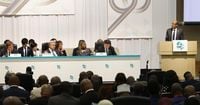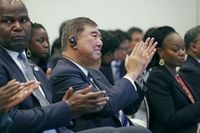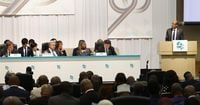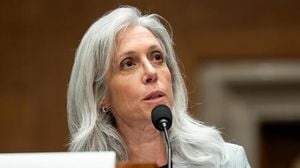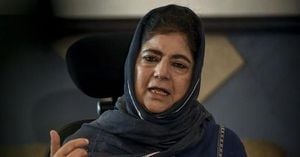In Yokohama, Japan, on August 20, 2025, Prime Minister Shigeru Ishiba took center stage at the Tokyo International Conference on African Development (TICAD), unveiling an ambitious plan to reshape economic ties between Asia and Africa. His proposal to create a sweeping economic zone linking the Indian Ocean region to Africa signals Japan’s intent to play a larger role on the continent, especially as U.S. influence wanes and China’s footprint continues to expand.
The three-day summit, now in its ninth iteration since its inception in 1993, drew leaders and representatives from about 50 African nations, along with officials from international organizations. The agenda was as broad as it was urgent—addressing economic growth, peace and stability, health, climate change, and education. The gathering’s timing was no accident. According to AP, the summit comes as U.S. President Donald Trump’s trade policies and steep cuts to foreign aid have cast a shadow over development projects across Africa, while China, through its Belt and Road Initiative, has steadily deepened its involvement since 2000.
"Japan believes in Africa's future," Ishiba declared, his words echoing across the conference hall. He emphasized Japan’s support for the African Continental Free Trade Area, an ambitious initiative aiming to boost regional competitiveness by removing tariffs and standardizing rules within the bloc. By linking the Indian Ocean region to the African continent, Ishiba said, Japan hopes to strengthen business and investment, promote free trade, and help Africa become a more integrated economic force.
The core of Ishiba’s proposal is the new "Economic Region Initiative of Indian Ocean-Africa." This framework, according to Japan’s Foreign Ministry, will leverage the expertise and investment power of Japanese firms already operating in India and the Middle East. These companies will collaborate with African governments and businesses to expand trade and investment, with a particular focus on improving logistics networks and critical mineral supply chains—areas essential to Africa’s industrial development and resilience.
But Ishiba’s vision goes beyond infrastructure and trade. He announced that Japan will extend up to $5.5 billion in loans, coordinated with the African Development Bank, to promote Africa’s sustainable development and address persistent debt problems. This financial lifeline is designed to restore fiscal health to African economies while catalyzing private-sector-driven investment. "We will strengthen private-sector-driven investment through collaboration between the government and business circles," Ishiba said, highlighting the need for a multi-stakeholder approach that includes governments, industries, and academia.
Perhaps the most forward-looking aspect of Ishiba’s plan is its focus on human capital. By 2050, Africa’s population is expected to balloon to 2.5 billion, up from 1.5 billion today, making the continent a critical market and labor force for the global economy. Yet, as AP noted, Africa has struggled to develop industries and create jobs vital for social stability. To address this challenge, Japan pledged to train 30,000 artificial intelligence (AI) experts in Africa over the next three years. This initiative, to be carried out in partnership with leading Japanese AI expert Yutaka Matsuo of the University of Tokyo, will see new AI and data science courses launched at universities in Kenya, Uganda, and other countries. The curriculum will focus on practical applications in manufacturing, agriculture, and logistics—sectors crucial for Africa’s economic transformation.
But the commitment to human resource development doesn’t stop at AI. Ishiba announced that Japan will nurture a total of 300,000 people in Africa within the next three years, including 35,000 in health and medical fields. This broad-based approach aims to create jobs, foster digitalization, and bridge the digital divide that has long hampered Africa’s development. As United Nations Secretary-General António Guterres put it at the summit, “Africa must have a stronger voice in shaping the decisions that affect its future.” He called for an "unjust and unfair international financial architecture" to be reformed, so that African nations are better represented in global decision-making.
The summit’s discussions reflected these priorities, with leaders zeroing in on peace and stability, economic issues, and social challenges such as health, climate change, and youth exchanges. According to AP, the event’s final day will see the adoption of the "Yokohama Declaration," a document expected to codify the summit’s key outcomes and set the tone for future collaboration between Japan and Africa.
Japan’s renewed focus on Africa comes at a time of shifting global dynamics. The United States, once a major player in African development, has scaled back its engagement, leaving a void that China has eagerly filled with infrastructure projects and loans. As AP reported, China’s involvement in Africa has grown steadily since the turn of the millennium, with the Belt and Road Initiative connecting the continent to global supply chains—and to Beijing’s strategic interests. Meanwhile, the African Union’s accession to the Group of 20 major economies in 2023 has given the continent a bigger voice in international affairs, underscoring the urgency for partners like Japan to engage more deeply.
On the sidelines of the conference, Ishiba held bilateral talks with several African leaders, including Kenyan President Samoei Ruto. During these meetings, Ishiba expressed his hope to deepen cooperation with Kenya as a "like-minded country sharing values and principles" to help realize a "free and open Indo-Pacific." These diplomatic gestures reinforce Japan’s broader strategy of building alliances and fostering stability in a region that is increasingly seen as a geopolitical battleground.
Japan’s approach, however, is distinct from that of other major players. Rather than focusing solely on infrastructure or resource extraction, Tokyo is positioning itself as a partner in Africa’s digital transformation and human development. By offering expertise in AI, digitalization, and education, Japan hopes to co-create solutions to the challenges African nations face—a message that resonated throughout the summit.
As the world’s attention turns to Yokohama for the release of the "Yokohama Declaration" on August 22, many will be watching to see how these ambitious pledges translate into concrete action. For now, Ishiba’s proposals have set a new benchmark for international cooperation with Africa, one that seeks to balance economic opportunity with social responsibility and long-term partnership.
With global power dynamics in flux and Africa’s significance on the rise, Japan’s bold initiative could mark a turning point—not just for the continent, but for the future of international development itself.
